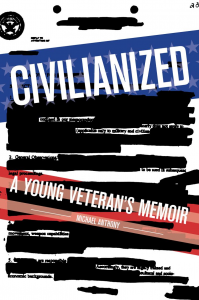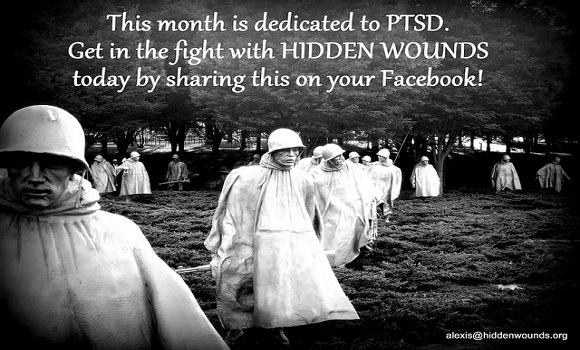There are more than fifty thousand veterans in the United States today. A significant portion of which have experienced, in one way or another, a sort of unforgettable and traumatic event during their tour of duty. When these incidents create frequent and negative emotional personal responses, coupled with physical injury and other physical or psychological illnesses, a person is most likely experiencing Post-Traumatic Stress Disorder or PTSD.
Post-Traumatic Stress Disorder can occur to anyone who has experienced a life-threatening event like military combat, terrorist attacks, child abuse, serious automobile accidents, sexual assault, rape, hurricanes, earthquakes, or kidnapping. In veterans, PTSD usually stems from events during combat or military duty. Symptoms of PTSD may surface right away while there are cases where symptoms only manifest after years.
Symptoms of PTSD in Veterans
Once soldiers and military personnel have retired or ended their service tours and they try to live a normal civilian life, PTSD symptoms can surface. Why this occurs is not known. But the symptoms and its emergence may vary depending on how the trauma’s impact to the veteran, how much control the veteran felt for the event, how close he/she was to the event and to the persons affected.
PTSD is usually diagnosed when the symptoms last for more than four weeks and the symptoms have remarkably affected the veteran’s life and work.
The four types of PTSD symptoms are: 1) Re-experiencing the event, 2) Avoiding memory triggers, 3) Hyper-arousal, and 4) Feeling guilt and numb.
How Is PTSD Treated?
The primary mode of treatment for PTSD is a combination of medications and counseling. The latter can be any form of any of the following evidence-based psychotherapies: Cognitive Behavioral Therapy (CBT), Cognitive Processing Therapy (CPT), Prolonged Exposure (PE) therapy, and Eye Movement Desensitization and Reprocessing (EMDR). These techniques are even endorsed by the United States Department of Defense and Department of Veterans Affairs.
The first line of pharmacologic treatment of post-traumatic stress disorder typically involves the use of Selective Serotonin Reuptake Inhibitors or SSRIs like Sertraline (Zoloft), Fluoxetine (Prozac) and Paroxetine (Paxil). The neurotransmitter serotonin is essential in how our body’s moods are regulated. SSRIs functions in a way that serotonins cannot be absorbed by our brain cells and therefore manages the anxiety and negative moods experienced by patients with PTSD. Current scientific evidence base strongly support these drugs. However, there can be exceptions for their prescription if the patient is experiencing other conditions like bipolar disorder.
In some cases, veterans seek other forms of treatment in conjunction to their current treatment regimens. Psychiatrists also recommend veterans to participate in complementary and alternative forms of treatment for PTSD.
Alternative Therapies for PTSD
Acupuncture
Acupuncture involves the insertion of very thin needles into the skin layers of meridian points in the body. This process aims to restore balance and energy flow, giving the person a profound sense of calm. Veterans with PTSD who seek this form of treatment often report a decrease in nightmares and when it is coupled with psychotherapy, the results can be remarkable. In Oriental medicine, acupuncture is also used to treat other bodily illnesses, anxiety and stress disorders. Most Veterans Affairs offices in the country offer it as one the different alternative therapies available for veterans.
You can check this link if your local Veterans Affairs office has a resident acupuncturist in their roster: http://www2.va.gov/directory/guide/ptsd_flsh.asp
Biofeedback
Biofeedback is a form of a physiological control technique. With the use of an electronic instrument attached to the patient, the patient can alter his/her reactions when the instrument indicates abnormal internal responses. In veterans with PTSD, biofeedback can be applied to control symptoms like sudden anger, being jittery, or having flashbacks.
Relaxation Techniques
Hyperarousal is the state of always being jittery and excessively vigilant for signs of danger. This is a common symptom among veterans with PTSD and can lead to sleeping disorders, panic attacks, and anger issues. When veterans’ exhibit these symptoms are observed, therapists often teach and recommend doing relaxation techniques.
A simple relaxation exercise can involve alternate clenching one’s right fist, releasing it, and doing the same step with his/her left fist. Progressive muscle relaxation can be done in as little as five to ten minutes or whenever patients feel like they are feeling particularly jumpy.
Yoga
Veterans with PTSD often exhibit issues with their body’s fight-or-flight reactions, often making them feel stressed out. By doing yoga, their bodies are retrained to adapt to these traumatic memories by facing them down and incorporating deep breathing techniques and calming posture instead of the usual flighty reactions. Several studies done by the United States Department of Defense also supports the long-held belief that yoga helps improve the health conditions of PTSD-diagnosed veterans.
Most yoga classes can be done in a group setting or you can ask for a one on one session with an instructor. As little as two months of weekly classes can do wonders for your body and state of mind.
Equine Therapy
A recent alternative form of therapy for veterans with PTSD is the use of horses. Veterans undergoing equine therapy are made to care for a horse. Horses are animals that, when taught and trained properly, are receptive to social cues.
A horse’s ability to bond to a human trainer and sense their moods is helpful when dealing with anyone with PTSD. Veterans in equine therapy are found to have decreased stress levels. They are also found to be more compliant with this alternative form of treatment perhaps because horse-riding can be an enjoyable sport.
Equine therapy is also offered in about 30 Veteran Affairs centers in the country.
PTSD Coach App
Another alternative form of PTSD treatment for veterans is the PTSD Coach. This is a smartphone app that veterans can download for free. The app allows veterans to be aware of the onset PTSD symptoms, gives steps to cope with stress and provides links to PTSD help lines.
Integrating technology in this alternative treatment method is a step carving out a safe and nonjudgmental place for veterans who are experiencing PTSD symptoms but are too afraid or confused to seek help.
Mindfulness and Meditation
The practice of mindfulness is useful to veterans with PTSD since this allows them to focus on the now and learn to deal with situations that affect them in the present moment. PTSD patients are often plagued with flashbacks of traumatic events that can be crippling to them. Mindfulness is a tool against these experiences.
Mindfulness-based treatment plans are offered in PTSD clinics and Veterans Affairs centers all over the country. These therapy sessions include group or one-on-one sharing sessions, stretching and meditation exercises.
Massage Therapy
The use of touch and physical manipulation as a form of alternative treatment has been common in many cultures all over the world. This therapy centers on the belief that health is restored by the manual manipulation of bones, muscles and tissues. For veterans with PTSD, this form of treatment can be beneficial since it allows the patients to relax and loosen their minds.
Massage therapy can be used in conjunction with other conventional forms of treating PTSD. Other forms of massage therapy like Rolfing and chiropractice. It should be noted that these treatment modalities should not be used with patients with a history of physical abuse or those with heightened senses.
Family Therapy
Family therapy can often be done in conjunction with any form cognitive behavioral therapy that a person with PTSD commits to. Counseling in this form allows the patient and his/her family to communicate with each other and learn more about how PTSD is treated. The burden of treatment for PTSD should not only fall towards the person experiencing it, but it should also be shared with you and your family for it to be successfully treated.
The important part about family therapy is to improve a family’s relationship dynamics.
Energy Therapy
Energy therapy is a relatively newer form of complementary and alternative therapy for PTSD. One of the most prominent forms of energy therapy is called Emotional Freedom Technique or EFT.
This treatment option is a variation of acupuncture since the patient touches the acupuncture points or energy meridians in one’s body to stimulate them. Energy therapy can be learned through a practiced instructor and, later on, the patient can perform the techniques himself.
Image Rehearsal Therapy
Image rehearsal therapy is used for managing nightmares in patients with PTSD. It is a form of guided imagery where patients are taught to picture a series of scenes or a picture from their traumatic experiences and use this to cope with it over a period of time. When veterans are taught to consciously picture these images in their minds, their nightly terrors will not be as disturbing in effect.
There are other forms of alternative therapies used by different cultures in the world. The ones enumerated here are those most effective for PTSD. If you wish to explore them, you can visit www.holisticonline.com
Implications
At this time, there is insufficient proof of the effectiveness of complementary and alternative therapies for treating Post-Traumatic Stress Disorder in veterans. However, initial findings of alternative therapies are encouraging. Therefore, they are best used in addition to conventional treatments for PTSD patients or as a stepping stone for patients who decline to get medical treatment for PTSD.
Where to Get Help
Talking to a therapist is not easy nor is taking medications whose side effects you cannot be sure of. But if you are experiencing any of PTSD symptoms, it’s no good keeping your feelings repressing them either. There are a lot of options for now out there. You can seek for help online, just visit www.ptsd.va.gov/public/where-to-get-help.asp
Civilianized: A Young Veteran’s Memoir
In this dark humored War Memoir, Iraq veteran Michael Anthony discusses his return from war and how he defeated his PTSD. Civilianized is a must read for any veteran, or anyone who knows a veteran, who has returned from war and suffered through Post-Traumatic Stress Disorder (PTSD).
 “An intense memoir.” -Kirkus
“An intense memoir.” -Kirkus
“I wont soon forget this book.” -Mary Roach
“A must read.” -Colby Buzzell
“[S]mart and mordantly funny.” –Milwaukee Journal Sentinel
“Anthony delivers a dose of reality that can awaken the mind…” Bookreporter
Order your copy of Civilianized: A Young Veteran’s Memoir .


